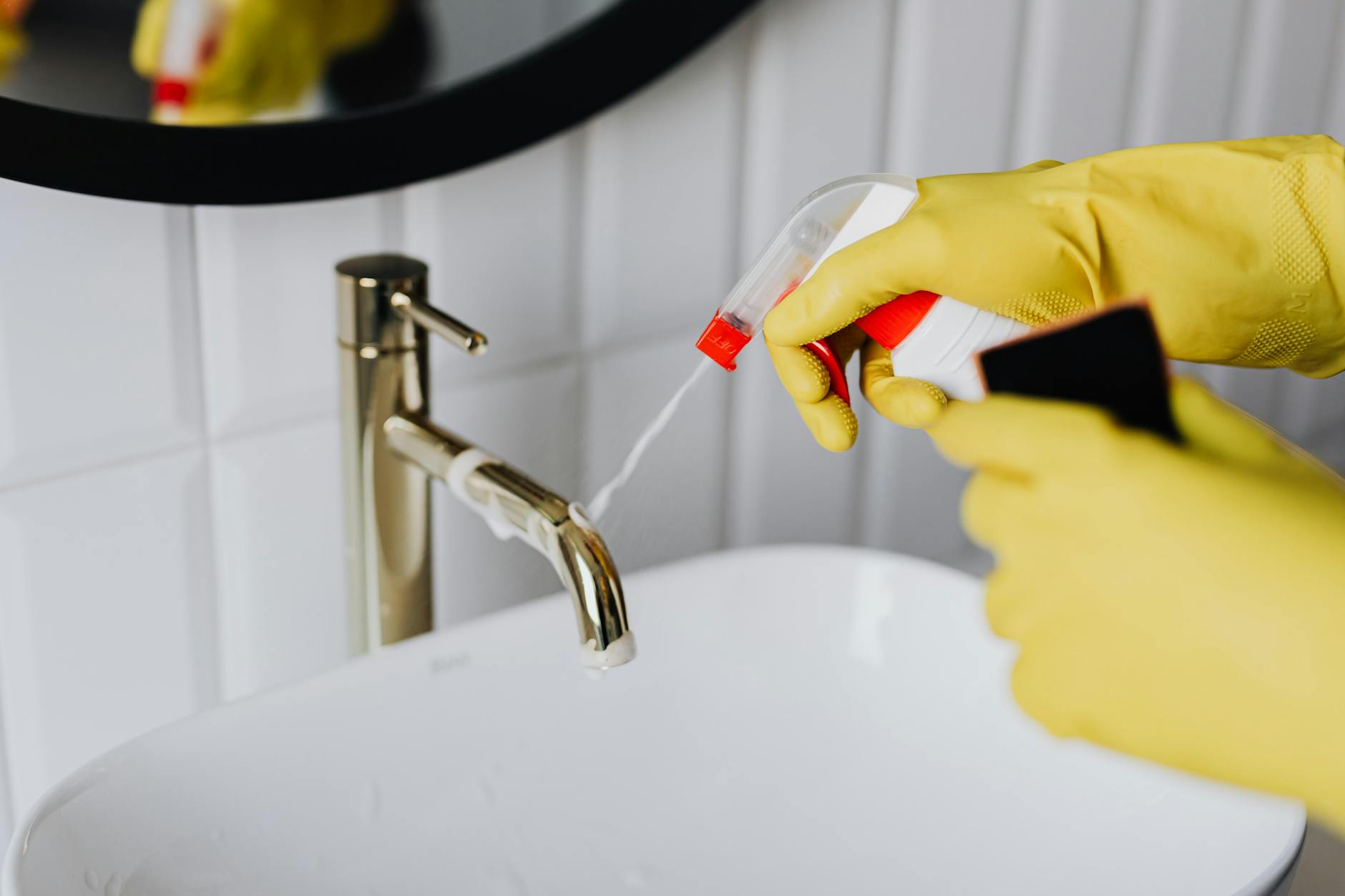Your gut health plays a huge role in your overall wellbeing. It aids in digestion, absorbs nutrients, and even helps your immune system. When your gut is happy, you’re more likely to feel good too. But what happens when it’s not? A poor gut can lead to problems like bloating, digestive issues, and even affect your mood. So, how can you keep your digestive system happy and healthy?
Understanding the Gut Microbiome
The gut microbiome is a complex ecosystem of microorganisms that live in your digestive system. It’s made up of trillions of microorganisms, including bacteria, viruses, and fungi, that work together to keep you healthy. But what happens when this balance is disrupted? Research suggests that an imbalance of gut microorganisms, also known as dysbiosis, can lead to a range of health problems, from digestive issues to mental health concerns. So, how can you keep your gut microbiome in check?
The Role of Fiber
Fiber-rich foods are essential for a healthy gut microbiome. When you eat fiber, it’s not fully digested in your small intestine, so it makes its way to your large intestine, where it’s fermented by your gut bacteria. This process produces beneficial compounds, such as short-chain fatty acids, which help to feed your gut cells and keep them healthy. You can find fiber in foods like fruits, vegetables, whole grains, and legumes. For example, a study by J Fu found that dietary fiber intake is associated with a lower risk of chronic diseases, such as heart disease and type 2 diabetes. To incorporate more fiber into your diet, try adding fruits and vegetables to your meals, or switching to whole grain bread and pasta.
Some high-fiber foods include:
- Apples
- Bananas
- Broccoli
- Carrots
- Whole wheat bread
- Brown rice
- Quinoa
- Almonds
- Chia seeds
The Power of Probiotics
Probiotics are live microorganisms that are similar to the beneficial microorganisms found in your gut. They can be found in fermented foods like yogurt, kefir, and sauerkraut, or taken as a supplement. When you take probiotics, they can help to populate your gut with beneficial microorganisms, which can help to crowd out the bad bacteria and maintain a healthy balance. Probiotics have been shown to have a range of health benefits, from improving digestion to boosting the immune system. For example, a study by F Zhang found that probiotics can help to reduce inflammation in the gut, which can lead to a range of health problems. You can find probiotics in foods like yogurt and kefir, or take them as a supplement. Always talk to your doctor before taking any new supplements.
Dietary Choices for Gut Health
When it comes to maintaining a healthy gut, the food you eat plays a significant role. A well-balanced diet can help support the growth of beneficial bacteria, while a poor diet can lead to an imbalance of gut microorganisms. So, what are some of the best dietary choices for gut health?
 Photo by Ella Olsson
Photo by Ella Olsson
Fermented Foods
Fermented foods are rich in beneficial bacteria and can help support the growth of good bacteria in the gut. Some examples of fermented foods include yogurt, kefir, sauerkraut, and kimchi. These foods contain live cultures that can help populate the gut with beneficial microorganisms, which can help to crowd out the bad bacteria and maintain a healthy balance. According to https://www.hopkinsmedicine.org/health/wellness-and-prevention/eating-for-your-gut, eating a balanced diet that is rich in fruits and vegetables can provide the fiber needed to build good bacteria and guard gut health.
Hydration and Gut Health
Staying hydrated is also important for maintaining a healthy gut. Water helps to keep the digestive system moving and can help prevent constipation, which can lead to an imbalance of gut microorganisms. Aim to drink at least eight glasses of water a day and limit your intake of sugary drinks, which can be detrimental to gut health. As stated on https://www.healthline.com/health/gut-health, managing stress levels and getting enough sleep can also improve gut health. By making these simple changes to your diet and lifestyle, you can help support the health of your gut and maintain a strong immune system.
Lifestyle Habits for Gut Health
A healthy gut is the key to overall wellbeing, and lifestyle habits play a significant role in maintaining gut health. When it comes to supporting the health of your gut, there are several lifestyle habits you can adopt to keep your digestive system happy and healthy. Two of the most important habits are stress management and physical activity.
 Photo by Yan Krukau
Photo by Yan Krukau
Stress Management:
Stress can have a significant impact on gut health, causing digestive issues, bloating, and even affecting your mood. So, how can you manage stress to support the health of your gut? The first step is to identify the sources of stress in your life and find ways to reduce them. This can include taking breaks throughout the day, practicing relaxation techniques, and getting enough sleep. For example, you can try deep breathing exercises, meditation, or yoga to help reduce stress. According to https://badgut.org/information-centre/a-z-digestive-topics/stress-management/, eating a well-balanced diet by following Canada’s Food Guide can also help manage stress.
Here are some stress management techniques you can try:
- Practice deep breathing exercises
- Try meditation or yoga
- Take breaks throughout the day
- Get enough sleep
- Eat a well-balanced diet
Physical Activity and Gut Health:
Physical activity is another important lifestyle habit that can support the health of your gut. Exercise can help improve digestion, reduce inflammation, and even promote the growth of beneficial bacteria in the gut. So, how can you incorporate physical activity into your daily routine to support the health of your gut? The first step is to find an activity you enjoy, whether it’s walking, running, or swimming. Aim to get at least 30 minutes of moderate-intensity exercise per day, and try to incorporate activities that reduce stress, such as yoga or Pilates. For example, exercises like Hatha or Iyengar yoga, which focus on alignment and posture, may also alleviate gastrointestinal symptoms and improve stress, according to https://www.healthline.com/health/four-ways-to-improve-your-gut-if-youre-stressed.
Here are some ways to incorporate physical activity into your daily routine:
- Find an activity you enjoy, such as walking, running, or swimming
- Aim to get at least 30 minutes of moderate-intensity exercise per day
- Incorporate activities that reduce stress, such as yoga or Pilates
- Try to exercise outdoors, which can help reduce stress and improve mood
- Find a workout buddy, which can help keep you motivated and accountable
Maintaining a Healthy Gut
Maintaining a healthy gut is crucial for overall wellbeing, and it requires a combination of healthy dietary choices and lifestyle habits. A well-balanced diet that is rich in fruits, vegetables, whole grains, and legumes can help support the growth of beneficial bacteria in the gut. However, there are also several common disruptors of gut health that can lead to an imbalance of gut microorganisms.
 Photo by Kaboompics.com
Photo by Kaboompics.com
Avoiding Disruptors
So, what are some common disruptors of gut health? Antibiotics, for example, can kill off both good and bad bacteria in the gut, leading to an imbalance of gut microorganisms. Processed foods, which are high in sugar and unhealthy fats, can also disrupt the balance of gut bacteria. Additionally, a lack of dietary fiber can lead to a decrease in the production of beneficial compounds, such as short-chain fatty acids, which help to feed the gut cells and keep them healthy. Other common disruptors of gut health include stress, lack of sleep, and certain medications. According to a study by https://www.healthline.com/nutrition/8-things-that-harm-gut-bacteria, not eating a diverse range of foods, lack of prebiotics in the diet, drinking too much alcohol, and antibiotic use are all things that can harm gut bacteria.
Supporting Gut Health with Supplements
While dietary changes can go a long way in supporting gut health, some people may also consider taking supplements to support the health of their gut. Probiotics, for example, are live microorganisms that are similar to the beneficial microorganisms found in the gut. They can be found in fermented foods like yogurt and kefir, or taken as a supplement. Prebiotics, on the other hand, are non-digestible fibers that help feed the good bacteria in the gut. According to https://pmc.ncbi.nlm.nih.gov/articles/PMC8603731/, certain endocrine disruptors can influence gut microbiome richness and composition, and supplements like probiotics and prebiotics can help mitigate this effect. However, it’s always best to talk to a doctor before taking any new supplements, as they can interact with certain medications and have side effects in some people. A study by https://getopt.com/microbiome-disruptor/ found that method of birth, antibiotics, not enough dietary fiber, too much comfort food, illnesses, and other factors can all disrupt the gut microbiome, and supplements can help support the recovery of the gut microbiome.
It’s also important to note that while supplements can be helpful, they should not be relied upon as the sole means of supporting gut health. A well-balanced diet and healthy lifestyle habits, such as regular exercise and stress management, are also crucial for maintaining a healthy gut. As stated on https://seed.com/cultured/top-gut-disruptors/?srsltid=AfmBOornOknAYPTkXWct4kQaD3i8vsDrxHCUy_0noh9SYAfgHlWD_bjQ, alcohol, sugary foods, sleep loss, stress, and antibiotics are all common gut disruptors, and a combination of dietary changes and supplements can help recover from these disruptions. By making informed choices about the foods we eat and the supplements we take, we can help support the health of our gut and maintain a strong immune system.
Conclusion
Your gut health is crucial to your overall wellbeing, playing a significant role in digestion, nutrient absorption, and immune system function. By making informed choices about your diet and lifestyle, you can help support the health of your gut and maintain a strong immune system. Remember to eat a balanced diet rich in fruits, vegetables, whole grains, and legumes, and consider incorporating probiotics and prebiotics into your routine. Stay hydrated, exercise regularly, and manage stress to keep your digestive system happy and healthy. Take control of your gut health today and start feeling the benefits for yourself. What small change will you make today to prioritize your gut health?








